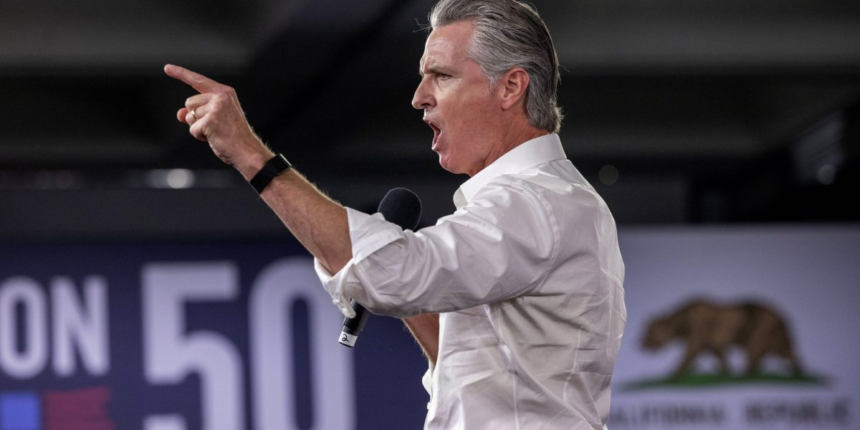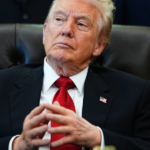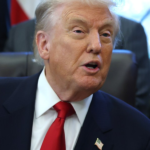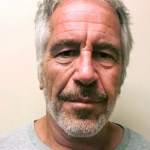A judge had given the administration until Friday to make the payments. But the administration asked an appeals court to suspend any orders requiring it to spend more money than is available in a contingency fund, and to move forward with planned partial SNAP payments for the month instead.
But its efforts around food stamps could complicate that.
The White House did not respond to questions Saturday about its rationale for appealing the SNAP orders to the Supreme Court or whether it was concerned about the optics of fighting against making the full payments.
“We can’t just create money out of the sky,” she said. “You can’t just create money to fund a program that Congress refuses to fund.”
While hundreds of thousands of federal workers have been furloughed and gone over a month without paychecks, the president has gone out of his way to ensure those he favors have been paid.
Homeland Security Secretary Kristi Noem has said her department had found a way to pay the U.S. Coast Guard and law enforcement officers within the department, including border patrol agents and immigration officers with funds from the sweeping “One Big Beautiful Bill Act” Trump signed this summer.
And FBI director Kash Patel has said that FBI special agents are still being paid — though other bureau workers are not. The administration has not said where that money is coming from.
Trump has repeatedly voiced skepticism about SNAP, and he and the White House have offered conflicting messages on what would happen to the program during the shutdown.
In a social media post Tuesday, Trump announced that the administration would not pay out any SNAP benefits until the shutdown was over, and suggested that some who receive benefits are not really in need.
Hours later, however, press secretary Karoline Leavitt said the administration would pay out partial SNAP benefits using contingency funding “that is supposed to be for emergencies, catastrophes, for war.”
But when asked Thursday about a judge ordering the administration to make the full payment, the president directed Vice President JD Vance, who was sitting next to him, to answer.
Vance called the ruling “absurd,” because, he said, “you have a federal judge effectively telling us what we have to do in the midst of a Democrat government shutdown.””
“In the midst of a shutdown, we can’t have a federal court telling the president how he has to triage the situation,” he said.
Trump added that he believes the country “has to remain very liquid because problems, catastrophes, wars, could be anything. We have to remain liquid. We can’t give everything away.”
The administration has faced lawsuits from Democratic-leaning states, nonprofits and cities since shortly after announcing that SNAP benefits would not be available in November because of the shutdown.
After the administration announced it would cover only 65% of the maximum monthly benefit, one judge ruled that they could not and would need to find the money to fully fund the program for November.
The Justice Department filed an emergency appeal. In its court filings Friday, the administration contended that the judge had usurped both legislative and executive authority. When a higher court refused to nullify the Friday payment deadline, the Trump administration turned quickly to the Supreme Court.
Through an order signed by liberal Justice Ketanji Brown Jackson, the high court agreed to keep the full-payment order on hold until 48 hours after the appeals court rules on whether to issue a more lasting pause. Jackson, a frequent dissenter from a series of recent decisions in favor of the administration, is the justice assigned to oversee appeals from Rhode Island, where the case originated.
The legal wrangling has left millions of Americans who depend on food aid in confusing limbo. People in some states have reported receiving their full benefits for November, while others could be waiting until at least next week.
___
Colvin reported from New York and Whitehurst from Washington.









